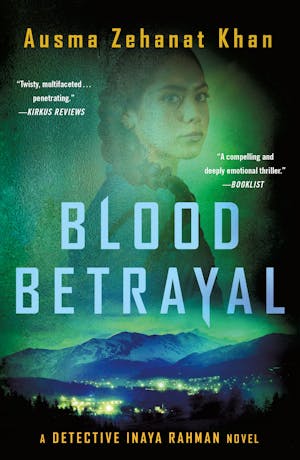Book details



Blood Betrayal
$14.99
About This Book
Book Details
A complex and timely mystery, Blood Betrayal proves once again that Ausma Zehanat Khan is a writer at the peak of her powers.
“Inaya is a fabulous character."—New York Times Book Review, "Editor's Choice" on Blackwater Falls
In Blackwater Falls, Colorado, veteran police officer Harry Cooper is hot on the heels of some local vandals when the situation turns deadly: believing one of them has a gun, Harry opens fire and Duante Reed, a young Black man, is killed. The "gun" in his hands was a bottle of spray paint. Meanwhile, in nearby Denver, a drug raid goes south and a Latino teen, Mateo Ruiz, is also killed.
Detective Inaya Rahman is all too familiar with the name of the young cop who has seemingly killed Mateo: Kelly Broda. Kelly is the son of the police officer John Broda, who led a violent attack on her when they were both in Denver. No one is more surprised than Inaya when John turns up on her doorstep, pleading for her help in proving the innocence of his son.
With the Denver Police force spread thin between the two cases, protests on both sides of the cases begin. Inaya and her boss Lieutenant Waqas Seif have their work cut out for them to consider the guilt of the perpetrators and their victims. Harry was by all accounts an officer dedicated to the communities he served: was this shooting truly a terrible mistake? Duante was, to some, a street artist with no prior record, but to others, he was a vandal. Mateo was either in the wrong place at the wrong time, or a dangerous drug dealer. In either case, was lethal force truly necessary?
Forced to reckon with her own prejudices and work through those of her colleagues around her, Inaya must discover the truth of what really happened on one fateful night in Blackwater Falls.
Imprint Publisher
Minotaur Books
ISBN
9781250822413


